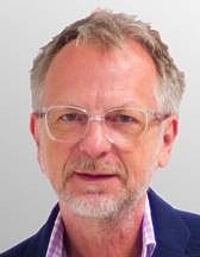Christian Behl

Biochemistry of Neurodegeneration & Ageing
The most frequent human neurodegenerative disorders including Alzheimer’s Disease, Parkinson’s Disease and amyotrophic lateral sclerosis are strictly associated with age; to decode the molecular mechanisms underlying neurodegeneration we therefore start by analysing the molecular differences between young and aged neurons. In particular, we focus on cellular protein homeostasis (proteostasis) – its importance being underlined by the occurrence of specific protein aggregates in several age-associated neurodegenerative disorders– as well as on autophagy and adaptive mechanisms neurons employ to compensate and adapt to different forms of cellular stress.
Positions held
- Since 2010: Director of the Institute of Pathobiochemistry, University Medical Center (UMC), Mainz
- Since 2002: Full Professor (C4) of Pathobiochemistry and Chair of the Institute of Pathobiochemistry, Johannes Gutenberg University (JGU), Mainz
- Since 2016: Vice Speaker of CRC 1177 “Molecular and Functional Characterization of Selective Autophagy”
- 2016 - 2019: Vice Speaker of Focus Program Translational Neurosciences (FTN)
- 2005 - 2010: Director, Interdisciplinary Centre for Neurosciences, Johannes Gutenberg University (JGU), Mainz
- 2003 - 2008: Executive Director, Institute of Physiological Chemistry and Pathobiochemistry, Johannes Gutenberg University (JGU), Mainz
- 1997 - 2002: Head (C3) of an Independent-Junior-Group of the Max Planck Society, MPI for Psychiatry, Munich
- 1994 - 1996: Research Scientist, Head of the Steroidpharmacology Group, MPI for Psychiatry, Munich
- 1992 - 1994: Postdoc, The Salk Institute for Biological Studies, San Diego
Education
- 1999: Habilitation, Ludwig Maximilian University, Munich
- 1991: PhD (Dr. rer. nat.), Thesis in Neurobiology, Julius Maximilians University of Wurzburg
- 1988: Diplom in Biology, Julius Maximilians University of Wurzburg
Selected publications by Christian Behl
Hiebel C, Sturner E, Hoffmeister M, Tascher G, Schwarz M, Nagel H, Behrends C, Munch C and Behl C# (2020) BAG3 proteomic signature under proteostasis stress. Cells, 9:2416 Link
Besemer AS, Maus J, Ax MDA, Stein A, Vo S, Freese C, Nalbach K, von Hilchen C, Pfalzgraf IF, Koziollek-Drechsler I, Silva B, Huesmann H, Boukhallouk F, Florin L, Kern A, Behl C# and Clement AM# (2020) Receptor-mediated endocytosis 8 (RME-8)/DNAJC13 is a novel positive modulator of autophagy and stabilizes cellular protein homeostasis. Cell Mol Life Sci, 78:645–660 Link
Bekbulat F, Schmitt D, Feldmann A, Huesmann H, Eimer S, Juretschke T, Beli P, Behl C# and Kern A# (2020) RAB18 loss interferes with lipid droplet catabolism and provokes autophagy network adaptations. J Mol Bio, 432:1216–1234 Link
Chakraborty D, Felzen V, Hiebel C, Sturner E, Perumal N, Mani-cam C, Sehn E, Grus F, Wolfrum U and Behl C# (2019) Enhanced autophagic-lysosomal activity and increased BAG3-mediated selective macroautophagy as adaptive response of neuronal cells to chronic oxidative stress. Redox Biol, 24:101181 Link
Weckmann K, Diefenthaler P, Baeken MW, Yusifli K, Turck CW, Asara JM, Behl C and Hajieva P# (2018) Metabolomics profiling reveals differential adaptation of major energy metabolism pathways associated with autophagy upon oxygen and glucose reduction. Sci Rep, 8:2337 Link
#indicates joint correspondence
